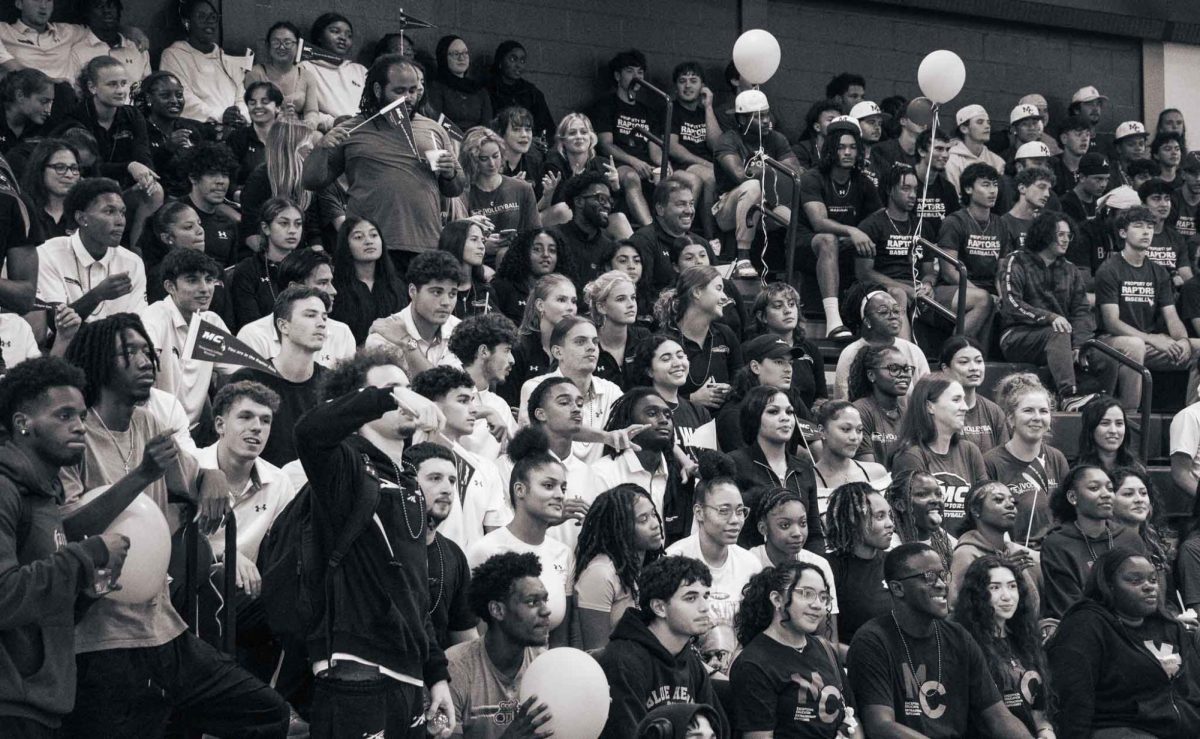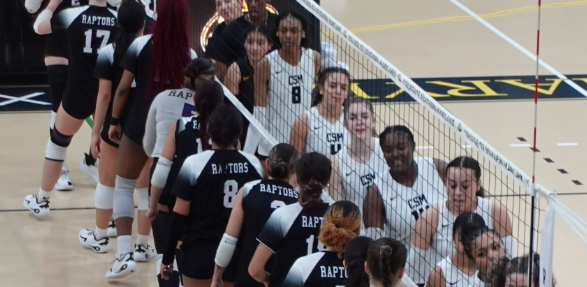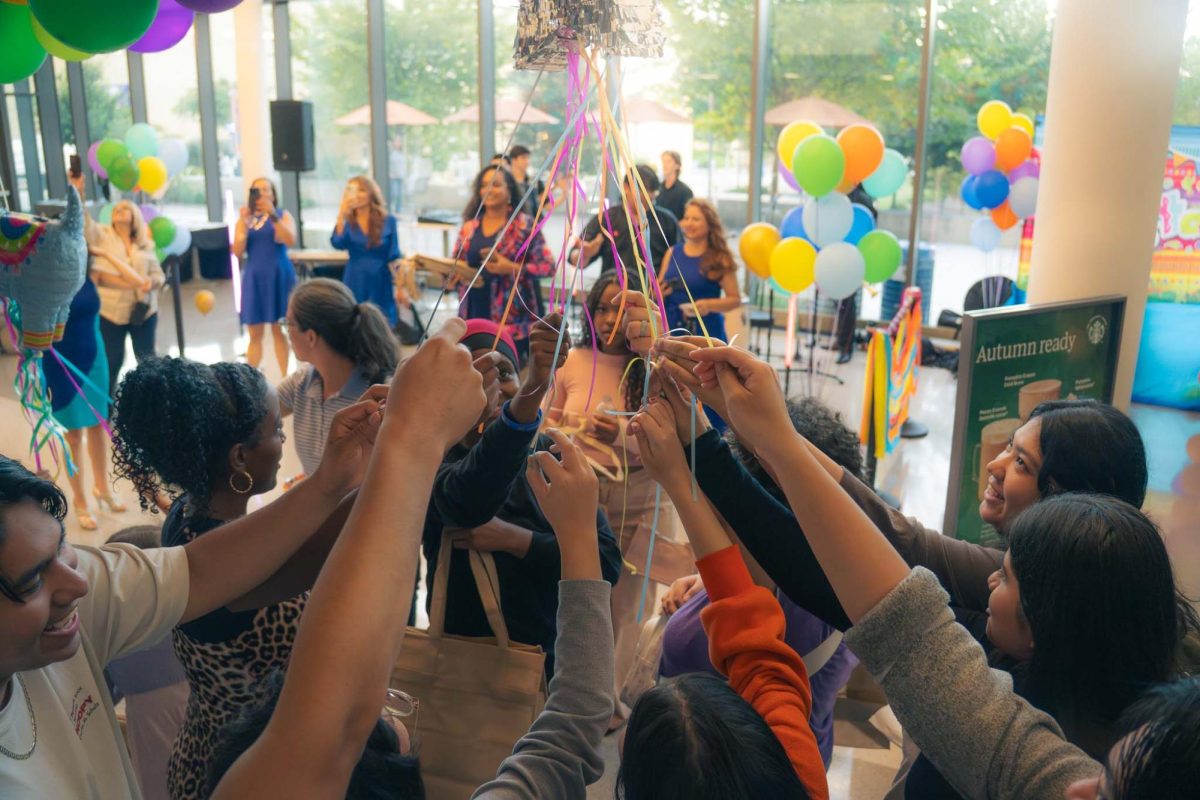On October 8th, three foreign affair experts came to Montgomery College to discuss African views toward U.S politics and government. They are Redi Tlhabi, Julian Pecquet, and Abu Bakarr. Tlhabi is an award-winning broadcaster from South Africa, previously presenting on Newsday, the BBC’s radio program. She has interviewed numerous newsmakers worldwide and also a regular columnist for News24, a popular publican in South Africa. Similarly, Pecquet has a rich history with foreign affairs, founding the Foreign Lobby Report and covering U.S. policy in the Middle East and North Africa for Al-monitor as a Washington correspondent. The third and final panelist, Jalloh, is U.N correspondent and human rights activist from Sierra Leone. Andrew Krieger, a political science and sociology professor at MC, and faculty advisor for Amnesty International, moderated the panel.
Tlhabi began the discussion with, “There is a sentiment [in Africa] that the United States is hypocritical. [The U.S] doesn’t support coups, … but if [their] …. economic interests are in jeopardy, [they] will speak to the coup leaders.” Tlhabi further explained “Even if there were areas of … agreement, the fact that the United States lectures [African countries] … they aren’t going to listen to that,” and “There are some African countries, even the democratic ones, who are critical of the United States [seeing] them as [dictatorial].”
Jalloh agreed, adding American political parties may have worsened relationships with Africa. On immigration, Jalloh notes Republicans are viewed negatively by many Africans, whereas Democrats are the opposite, and this difference could be why Africa views the United States in a negative light.
As a side note, Jalloh adds JFK attempted to help Africa and portray America in a positive light, starting the process, but because of Trump‘s America First Policy, JFK’s plan was abandoned. Jalloh sees these plans play out similarly to those of today. “Former U.S President Donald Trump doesn’t hold [Africa] accountable; ordinary citizens don’t like that, but African leaders do.” But “Vice President Kamala Harris holds [Africa] accountable and so African leaders do not like that.” Jalloh explains this flip-flopping of foreign policy between each decade destabilizes the U.S diplomatic relationship with Africa.
Pecquet acknowledges Jalloh’s reason for U.S hypocrisy, “It is hypocritical, but also inevitable … you either have a value-based foreign policy … or forget the values. [There] are smaller fry countries where we will crack the whip because we can.” Pecquet then shifts the topic to U.S. foreign policy, saying “Americans come into countries like those in Africa, saying ‘we bring the best value proposition for exploiting your minerals … and to [move] you up the value chain, … but radical government changes are needed.”
After the discussion, one student asked, “Do you think African countries are demonstrating a preference for a new world order, like BRICS?” For those unaware, Krieger, the panel moderator, explained, “BRICS was a loose alliance of countries spirited by Russia, consisting of Brazil, Russia, India, China, and South Africa, and more… independent of the American dominated world order.” Krieger included, “People see America benefitting most from the Cold War, whereas Africa has received little to none [of a benefit].” After a few students asked their questions, the discussion then ended.
At the end, the panelists finished and emphasized understanding each other’s actions and contrasting our views with one another.








